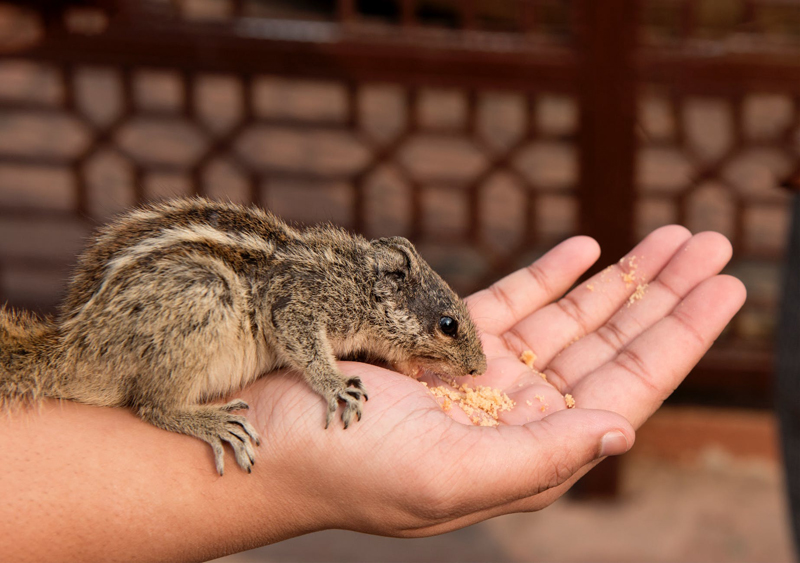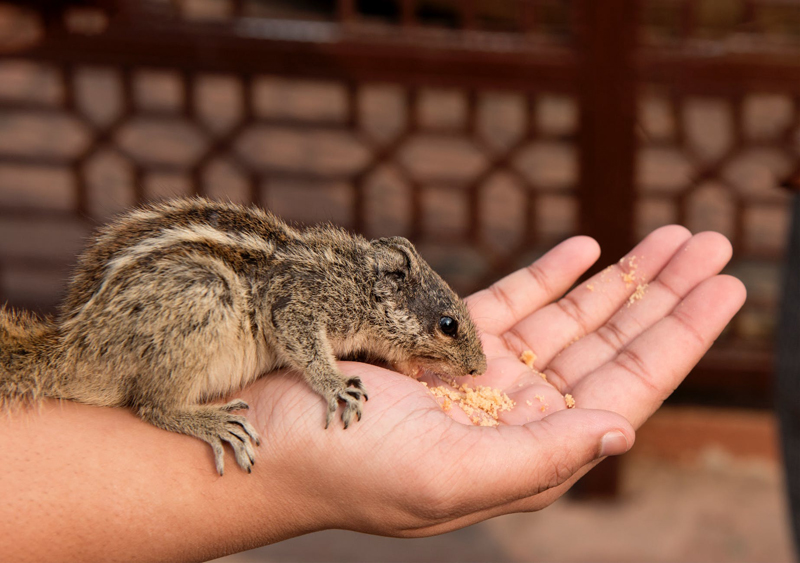Ducks - How to Care for Ducks

My enthrallment with ducks began with a fascination with eggs. Somewhere I had gotten a hold of an egg incubator, back when I was around twenty-seven. Having two young children made it a great excuse to provide them with an educational/learning experience. We put the incubator to great use.
I set out to learn as much as I could about chickens, ducks, and most anything that came out of an egg. I am lucky the incubator didn’t fit ostrich eggs because I would surely have had an ostrich. If elephants came from eggs I would have had an elephant. I loved animals back then as much as I do now but had little self control.
I decided on ducks. I ordered a bunch of fertile eggs from a farm catalog. There was a guarantee that the vast majority would be female duck eggs. I am pretty sure they all were, every single duck egg was a female. I had thought the process through pretty carefully. At least the incubator part and what I would do with the adult ducks. I hadn’t thought about the baby ducks after they hatched…oops. I had twenty-four new little hatchlings living in my kitchen until I thought they were old enough to live out in the shed/pen I built for them.
It took about 28 days for the duck eggs to hatch. I know someone will ask how long does it take for a duck egg to hatch. The domestic duck originally came from mallard ducks.
They became old enough to live outside in their own pen when when they could make a mess faster than I could clean it up. They all knew I was their mother and followed me all over (imprinting). We were quite bonded. I took them outside with me to weed the vegetable garden. These little gals would cruise up the rows eating every, bug, slug, snail, and pest in sight, and some completely out of site. Benefit number one – they eat pests. Just make sure you separate your leafy veggies from the rest of the garden. Ducks will eat that too. They do eat some weeds. We had a few tug-a-wars. They could keep the bugs.
Benefit number two surfaced when they grew up. I went out to the shed to let my duck kids run with me and low and behold there was an egg. While I knew they would lay eggs I didn’t know they would be as productive as a chicken. I decided to try one of the eggs. It was the best egg I had ever had. We became firm and fast duck eggs eaters. The eggs were bigger, more flavorful, and the yolk had a richer color. Before long the whole family was eating duck eggs.
It was funny; this was when the kid-catcher machines in front of the store had eggs in them with prizes. My kids always called these machines duck-duck egg machines. They never knew that eggs came from anywhere but ducks until they were a bit older.
Eventually, I ended up with a single duck that needed a home. It had been a pet duck. This sweet/crazy little duck would wait for me to sit down and he would jump into my lap and lay there. We became close buddies. He followed me everywhere I went including trying to follow the car. I had to close him up before I drove off in the car.
Raising Ducks
If you get your duck as a duckling you will have to keep it warm because their down won’t keep them warm even at average temperatures. The down is not waterproof either. Keep them dry. Provide heat using a dull-emitter ceramic lamp or an infra-red lamp. Never use those awful bright lights, they aren’t good for the ducks.
Here are some pictures of ducks
|
Provide shallow water. Keep the water weighted down with a brick or similar object. Replace the water frequently. They must have plenty of fresh water to be able to eat their food, without getting wet. The water must be shallow for the first 10 days, add a bit more as they get older. They can’t get wet until they can water proof themselves with their preen glands. Before introducing them to water they can splash, swim, and play in, make sure they are at least a month old.
Make sure any equipment you will need is in place before you get your duckling or ducklings.
Getting the duck or ducks as babies will have the advantage of the baby imprinting on you making for a very friendly and tame pet. Don’t over handle they tire easily.
If you should “acquire an adult duck” it is more than possible you can make a pet out of it. Spend a great deal of time with the duck, and bribe it with goodies.
They will begin laying eggs (point of lay) at around 21-24 weeks of age. They have a fairly long lifespan of around 10 years.
Unless you intend on breeding ducks, stick with a single male or just females, male ducks have a huge sexual appetite. You will have a competition problem if you have more than one drake. If you do want to breed keep the ratio of male to females to one to ten.
Ducks like water. They have to have access to a stream or pond. They will have to have a source of water for splashing and preening. They are a water bird and this is a natural behavior. I solved the problem in my younger years by buying them a children’s pool and ramping it so they could get in and out easily. I also had to clean it daily if not more often. They can be quite messy. They also excrete a LOT.
They will get their food into their water. Again, this will have to be cleaned frequently (several times a day). They get food in their mouths head for the nearest water and shake their mouths in the water. This is necessary.
Keep their shelter and pen clean and dry. Provide nesting material for them especially when they begin laying eggs. If you don’t want to play Easter egg hunt everyday make sure they are in a confined area.
Make sure they have shade. They need a cool place to rest. They just can’t get too hot. It is the same situation with extreme cold temperatures. Keep them warm and enclosed in the winter.
Baby duck pictures
|
They will need a food container that can’t be overturned. They need fiber and protein, plus minerals and vitamins. You will find pelleted food or mash. The mash will be mix with water. They have starter crumbs for ducklings. This has a high level of protein which they will need as they are growing. Let them free ranged as they grow older for protein. If they aren’t getting protein outside you will have to provide the protein. I always kept a bag of starter crumbs on hand and mixed it with their regular food. It provided them with more protein.
They have to have water by their feed, they are water birds. The water is essential. They will be very messy and this will have to be cleaned throughout the day so that it doesn’t get dirty or moldy. The word fowl meaning icky messy is around for a reason. It doesn’t take long for the watery mess to stink either.
Get them use to being penned up at nighttime so that predicators can’t get to them. Let them out in the morning to play in their pond or stream. You will surely hear them when it is time to let them out. They can be quite noisy. A single duck as a pet won’t be that bad.
If you have hawks or other predatory birds enclose part of the pond for stream with wire.
Keep an eye on your duck or ducks for signs of ill health. If they aren’t thrilled to see you in the morning something may be wrong. Another sign of ill health is the duck sitting around, or not interested in eating.
Make sure the eyes remain shiny and bright. The duck’s feathers (plumage) should be shiny. Ducks will preen themselves often. Discharge from the eyes is also a sign of illness or a sign that the duck doesn’t have access to enough water. Dull plumage is also a sign that the duck doesn’t have enough water to splash and swim in.
Keep an eye on the vent area for clinging fecal matter. Make sure the duck is walking as he or she normally would.
Make sure you have a veterinarian that is experienced with ducks before you obtain a duck.
Ducks are amusing and quite charming and they can provide you with healthy, better tasting free-range eggs. They make a delightful pet. Ducks don’t have to be limited, ducks unlimited, why not pet ducks? I absolutely enjoyed raising ducks. Pet ducks make wonderful exotic pets.
Ducks make excellent pets as seen in this duck video, a video from YouTube about pets ducks and how sweet and friendly they can be.
Pet duck videos
More duck videos
A pet duck growing up "its always better when we're together" very sweet video
Above all else enjoy your pet duck.
Storey's Guide to Raising Ducks: Breeds, Care, Health

Ferrets: A Complete Guide available in paperback and Kindle. By Diana Geiger (me:) Five star reviews! Also available at Barnes and Noble online.
Ferrets: A Complete Guide - Paperback
Ferrets: A Complete Guide - Kindle
PDF Version Ferrets: A Complete Guide (Access to free PDF Reader)
Ferrets: A Complete Guide
Subscribe free to the exotic pets newsletter. It is quick and easy Just glance to the right or scroll a bit to the bottom and subscribe. I will only bug you once a week :) Be the first to be in the know! Your information is always private!
I am also the Bird editor if you enjoy pet birds subscribe to the Birds newsletter. Birds BellaOnline
This site needs an editor - click to learn more!
| Exotic Pets Forum Posts |
| Happy Birthday Diana |
| Animals Deserve to be Cherished |
| coatimundis as pets |
You Should Also Read:
Exotic Pet Site Map
Ferrets - A Complete Guide Paperback and Kindle
Exotic Pet Shopping (the safest for your pets)

Related Articles
Editor's Picks Articles
Top Ten Articles
Previous Features
Site Map
Content copyright © 2023 by Diana Geiger. All rights reserved.
This content was written by Diana Geiger. If you wish to use this content in any manner, you need written permission. Contact BellaOnline Administration for details.








